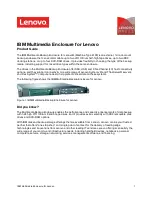
11
4. Operation and Charging
4.1 Determine Charging Voltages
Your Tripp Lite UPS is already set up for proper float and boost voltages from the factory.
4.2 Initial Charge
Proper amp-hour rating and charge current must be manually input into the UPS setup. Refer
to the Tripp Lite UPS Owner’s Manual for details.
4.3 Operational Check
1. Measure and record the total system float voltage. Measure at the battery terminals.
2. Measure and record the system float current using a clamp-on ammeter.
3. Measure and record the float voltage of individual battery units.
4. Measure and record the temperature of several batteries. Measure battery temperature
with a digital thermometer by placing the surface thermocouple on the flat surface of the
negative terminal—not the “L” connection surface. An infrared temperature monitor may
also be used.
5.
Optional:
Perform impedance and conductance tests on individual battery units. These
tests require special equipment, but the data can be useful in trending the system over
time or identifying suspect units during later periodic checks. It may be necessary to
disconnect the battery system from the charger/load during these checks.
5. Maintenance
The battery cabinet contains valve-regulated recombinant lead-acid (VRLA) batteries, which
are maintenance-free relative to the electrolyte. You cannot add water to these batteries
or sample the electrolyte-specific gravity. It is necessary, however, to periodically check the
charging voltage, temperature and connections of the individual battery units.
5.1 Maintenance Schedule
5.1.1 Quarterly Check
Quarterly maintenance by qualified service personnel is recommended.
18-05-110-933861-EN.indd 11
7/3/2018 2:58:03 PM












































